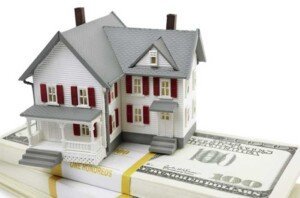Will Your Second Home in New York Leave You with a Big Tax Bill?
If you have multiple homes with one of them in New York, you could face a residency audit and significant tax liability. That is because of New York’s broad residency rules. 
New York residents are required to pay state tax on all worldwide income regardless of where it is earned. However, nonresidents are only subject to tax on income allocable to New York, such as wages earned for services provided within the state, rents from property located within the state, or income attributable to a New York trade or business. As a result, some taxpayers attempt to move out of the state to lower their taxes. However, they also want to have a place to stay in New York. If they do not follow the rules, they may still be stuck with a tax bill as a New York resident.
There are 2 tests for residency in New York: the domicile test and the statutory residency test. If you meet either of these tests, you will be considered a New York resident for income tax purposes. In a prior blog post, we addressed the domicile test. This post focuses on the statutory residency test only.
Under the statutory residency test, you will be treated as a resident of New York if you:
- Maintain a “permanent place of abode” in New York for substantially all of the year; AND
- Spend more than 183 days of the taxable year in New York.
New York defines a permanent place of abode as a residence (building or structure in which a person can live) that is maintained by the taxpayer for substantially all of the year (whether or not it is owned by the taxpayer) and is suitable for year-round use.
There are certain factors that are considered to determine whether you have maintained a permanent place of abode in New York State. They include:
- Whether the abode is suitable for year-round use;
- Whether you have legal rights to the abode;
- Whether you have unfettered access to the abode;
- Whether you are using the abode’s address to register your car and receive mail;
- Whether the abode had been maintained for more than 11 months during the year.
Every situation needs to be considered individually. For example, a hotel room or apartment without cooking facilities could be a permanent place of abode if maintained on a permanent basis. A vacation home could be a permanent place of abode if it is suitable for year-round use. It is important to note that you do not necessarily have to stay at or near your permanent place of abode to meet the statutory residency test.
In addition, if the abode is under construction and therefore, uninhabitable, then it will not be considered a permanent place of abode for that year.
If you are keeping an apartment for relatives, New York State will look to the particular facts and circumstances of each case to determine if it is a permanent place of abode. Factors that are considered are:
- Whether the dwelling is exclusively or primarily used by someone other than you;
- Whether you keep items in the home;
- The size of the home; AND
- Whether or not you have unrestricted access to the home.
The second prong for the statutory residency test looks to whether you spent more than an aggregate of 183 days of the tax year in New York State. Presence within New York State for any part of a day, for whatever reason (business or pleasure), would count as a day toward the 183-day rule, even if you come and go on the same day. However, there are certain limited exceptions for travel through the state and for medical necessity.
In an audit, you have the burden to prove your whereabouts by clear and convincing evidence, which can be a daunting task. This means you must prove a negative: that you were not in New York State. New York State may ask to analyze your diary, appointment log, or calendar. You may also be asked or subpoenaed to provide credit card and bank statements, detailed cell phone bills, EZ Pass records, ATM receipts, passport records, and data from security or swipe cards. Furthermore, smartphone applications have been developed, such as TaxDay or Monaco, to track and record an individual’s location using GPS signals.
As mentioned above, there are 2 tests for residency so if you have multiple homes or are considering purchasing one, which may involve a change in residency, be careful that you are not considered a resident under either test. For more information on New York residency audits, download our free eBook – Surviving A New York State Residency Audit.


